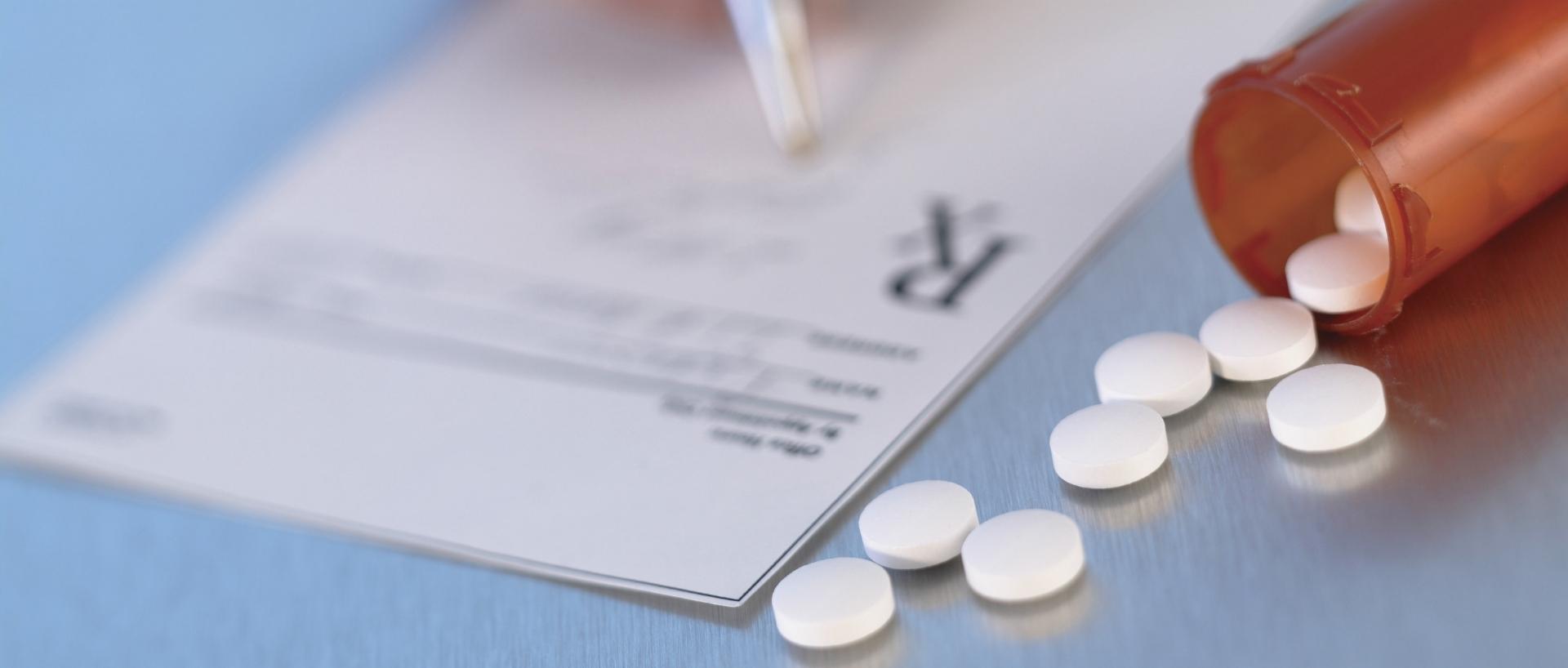Managing My Medications

Need a medication change?
If you need a medication change, you need to be seen by Dr. Hamilton.
Our refill request service should NOT be used for medication adjustments.
If you are having problems with your medication please scroll down to review the FAQ.
If your situation is urgent or life-threatening, please utilize emergency resources, including your primary care provider, walk-in clinic or ER.
Out of medication?
At each session, we will always offer to schedule your next appointment. We encourage you to make follow-up plans to ensure that your prescription will be sufficient to continue therapy until you can be reassessed by Dr. Hamilton or his staff.
If you do not set a follow-up appointment–or if you miss a scheduled appointment–it is your responsibility to carefully monitor your prescription inventory to ensure that you can be seen before you run out of medication.
If you run out of medication, our office will provide an unscheduled refill. Be sure to include the patient’s name and the medication(s) you’d like us to refill.


Curious about side-effects?
Starting a new medication can be a frustrating process. While the therapeutic (good) effects can take ten days (or more), the side-effects usually begin within a few days of starting the medication. The good news is that the side-effects usually lessen and disappear over several days; the bad news is that some of the side-effects can be uncomfortable and/or distressing.
Use the links below for advice and tips to make the adjustment to new medication as comfortable as possible. If the side-effects are severe, please notify our office — and seek urgent medical attention if you feel that it is necessary. Your nearest hospital emergency department or urgent care (walk-in) clinic can be a valuable source for support and treatment in these situations.
F.A.Q.
How does my medication work? What chemical pathways are involved, and which symptoms are being targeted by my therapy?
I have blurry vision, dry mouth and/or constipation. How do I deal with these anticholinergic side-effects?
Dry mouth
Dry mouth is a common side effect of many antidepressants.
Coping strategies
- Sip water regularly or suck on ice chips.
- Chew sugarless gum or suck on sugarless hard candy.
- Avoid caffeine because it can make your mouth drier.
- Breathe through your nose, not your mouth.
- Brush your teeth twice a day, floss daily and see your dentist regularly. Having a dry mouth can increase your risk of getting cavities.
- Talk to your healthcare provider about using a moisturizing mouth spray or another product that might stimulate saliva production.
Blurred vision
Blurred vision is a common side effect, but it usually goes away on its own within a couple of weeks of starting an antidepressant. With certain antidepressants, such as older (tricyclic) antidepressants, it may be an ongoing issue.
Coping strategies
- Talk to your healthcare provider about using special eyedrops to relieve dryness.
- Talk to your provider about changing your antidepressant or lowering your dose.
- Get an eye exam to see whether blurred vision caused by an antidepressant may be worsened by an underlying eye problem.
Constipation
Constipation is often associated with tricyclic (older) antidepressants because they disrupt normal functioning of the digestive tract and other organ systems. Other antidepressants sometimes cause constipation, as well.
Coping strategies
- Drink plenty of water.
- Eat high-fiber foods, such as fresh fruits and vegetables, brans, and whole grains.
- Get regular exercise.
- Take a fiber supplement (Citrucel, Konsyl, Metamucil, others).
- Consider taking stool softeners if other measures don't work.
I am dizzy, agitated or anxious after starting new medication.
Dizziness
Dizziness is more common with older (tricyclic) antidepressants and monoamine oxidase inhibitors (MAOIs) than with other antidepressants. These medications can cause low blood pressure, resulting in dizziness.
Coping strategies
- Rise slowly from sitting or standing positions.
- Use handrails, canes or other sturdy items for support.
- Avoid driving or operating machinery.
- Avoid caffeine, tobacco and alcohol.
- Drink plenty of fluids.
- Take your antidepressant at bedtime.
Agitation, restlessness, anxiety
Agitation, restlessness or anxiety can result from the stimulating effect of certain antidepressants. Although having more energy can be a good thing, it may mean you can't relax or sit still even if you want to. Be alert for racing or impulsive thoughts along with high energy. If these develop, talk to your doctor right away because they may be signs of bipolar disorder or another serious disorder.
Coping strategies
- Get regular exercise, such as jogging, biking or aerobics, or some type of physical activity, such as walking. Talk to your healthcare provider first about what would be a good type of exercise or physical activity for you.
- Practice deep-breathing exercises, muscle relaxation or yoga.
- Consult your healthcare provider about temporarily taking a relaxing or sedating medication or switching to an antidepressant that isn't as stimulating.
I started my new medication, and now I am nauseous.
Nausea
Nausea typically begins within a week of starting an antidepressant. It may go away after a few weeks when your body adjusts to the medication.
Coping strategies
- Take your antidepressant with food, unless otherwise directed.
- Eat smaller, more frequent meals.
- Suck on sugarless hard candy.
- Drink plenty of fluids, such as cool water or ginger ale that's lost its carbonation.
- Try an antacid or bismuth subsalicylate (Pepto-Bismol, others).
- Talk to your healthcare provider about a dosage change or a slow-release form of the medication.
I feel like I have been gaining weight now that I'm on medication.
Increased appetite, weight gain
You may gain weight because of fluid retention or lack of physical activity, or because you have a better appetite when your depression symptoms ease up. Some antidepressants are more likely to cause weight gain than others.
Coping strategies
- Cut back on sweets and sugary drinks.
- Select lower calorie nutritious foods, such as vegetables and fruits, and avoid saturated and trans fats.
- Eat smaller, more frequent meals and eat more slowly.
- Keep a food diary — tracking what you eat can help you manage your weight.
- Seek advice from a registered dietitian.
- Get regular physical activity or exercise most days of the week.
- Talk to your healthcare provider about switching medications, but get the pros and cons.
My sex life is suffering now that I'm on meds (decreased desire/libido, impotence, inability to climax/orgasm).
Sexual side effects
Most antidepressants cause sexual side effects that can last throughout treatment. They can include decreased sex drive and difficulty reaching orgasm. Some antidepressants may cause trouble getting or keeping an erection (erectile dysfunction). Selective serotonin reuptake inhibitors (SSRIs) are more likely to cause sexual side effects than other antidepressants are.
Coping strategies
- Consider a medication that requires only a once-a-day dose, and schedule sexual activity before taking that dose.
- Talk to your healthcare provider about adding or switching to an antidepressant that may counteract these effects, such as bupropion (Wellbutrin®).
- Talk to your healthcare provider about a "drug holiday" — stopping medication for a day or so each week to temporarily ease symptoms.
- If you are a man, a medication such as sildenafil (Viagra), vardenafil (Levitra, Staxyn) or tadalafil (Cialis) may temporarily ease sexual side effects. In women, estrogen cream is sometimes used.
- Talk to your partner about your sexual side effects and how they change your needs. Adjusting your sexual routine may be helpful. For example, you may need a longer period of foreplay before having sexual intercourse.
On my new medication, I am tired, fatigued or having trouble sleeping. Scroll down for more tips to overcome insomnia.
Fatigue, drowsiness
Fatigue and drowsiness are common, especially during early weeks of treatment with an antidepressant.
Coping strategies
- Take a brief nap during the day.
- Get some physical activity, such as walking.
- Avoid driving or operating dangerous machinery until the fatigue passes.
- Take your antidepressant one to two hours before bedtime.
- Talk to your healthcare provider to see if adjusting your dose will help.
Insomnia
You may experience insomnia because some antidepressants give you an energy boost. While that may sound appealing, it can also make it difficult to get to sleep or stay asleep — and you may be tired during the day.
Coping strategies
- Take your antidepressant in the morning.
- Avoid caffeinated food and drinks, particularly late in the day.
- Get regular physical activity or exercise — but complete it several hours before bedtime so it doesn't interfere with your sleep.
- Talk to your healthcare provider about taking a sedating medication at bedtime.
- If insomnia is an ongoing problem, ask your healthcare provider whether taking a low dose of a sedating antidepressant such as trazodone or mirtazapine (Remeron) before bed might help.
